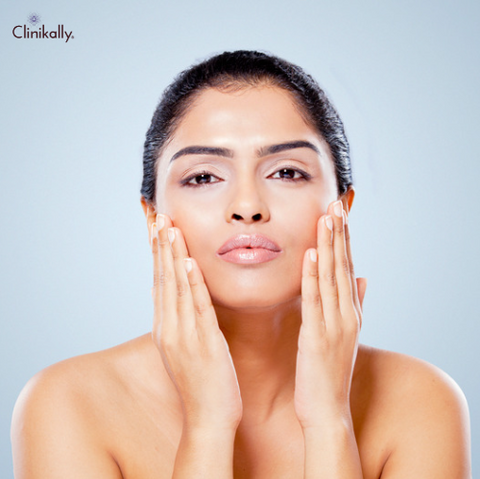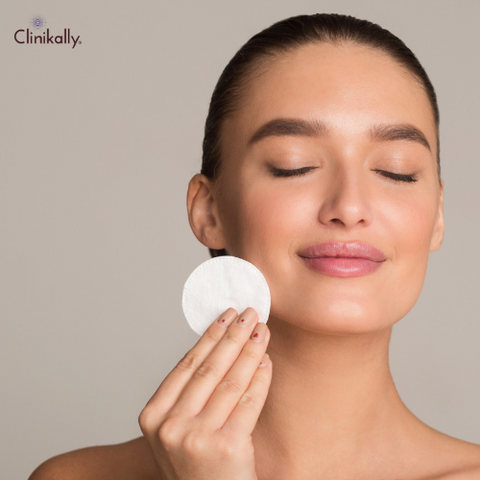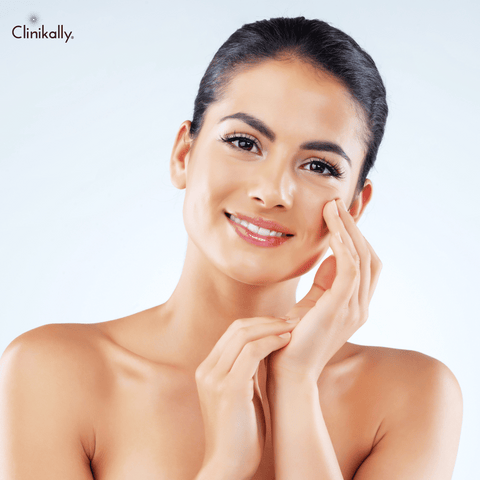Dealing with oily skin can be a frustrating and persistent battle, as it often leads to a range of skin concerns such as excessive shine, enlarged pores, acne breakouts, and an overall lacklustre complexion. Over the years, numerous natural and synthetic ingredients have been touted as potential solutions for managing oily skin. However, there is a new contender in the world of skincare that is garnering significant attention for its remarkable benefits in addressing oily skin concerns: L-Carnitine. This emerging ingredient has the potential to revolutionize the way we approach oily skin care by offering a multitude of skin benefits, ranging from sebum control to skin regeneration. In this comprehensive article, we delve into the pivotal role of L-Carnitine in skincare, with a special focus on its application and potential for oily skin. Join us as we explore the science behind L-Carnitine's efficacy, its mechanisms of action, and the practical ways it can be incorporated into your skincare routine, paving the way for a breakthrough solution to oily skin woes. Get ready to discover the pioneering power of L-Carnitine and unlock the path to a clearer, healthier, and more balanced complexion.
Deciphering L-Carnitine: An Essential Skin Ally

In the realm of skincare, the pursuit of radiant and youthful-looking skin is a never-ending quest. While a myriad of products promise transformative results, one often overlooked ally in the journey to healthy skin is L-Carnitine. Known primarily for its role in energy metabolism, L-Carnitine has emerged as a fascinating ingredient with the potential to revolutionize the world of skincare. This article delves into the multifaceted benefits of L-Carnitine for the skin, exploring its mechanisms of action, scientific evidence, and practical applications. Join us as we unravel the secrets of this essential skin ally, and discover how it can unlock a whole new level of skin care excellence.
What is L-Carnitine?
L-Carnitine is a naturally occurring compound that plays a crucial role in energy metabolism within the human body. It is synthesized from the amino acids lysine and methionine and is primarily stored in skeletal muscles, the heart, and the liver. L-Carnitine acts as a carrier molecule, facilitating the transport of fatty acids into the mitochondria, where they are converted into energy.
Beyond its role in energy metabolism, L-Carnitine has gained recognition for its diverse benefits in various bodily functions. It serves as an antioxidant, protecting cells from oxidative stress, and has been linked to cardiovascular health, brain function, and exercise performance. However, in recent years, researchers have also uncovered the potential of L-Carnitine in skincare.
In the context of skincare, L-Carnitine has demonstrated unique properties that make it a valuable ingredient. It possesses sebum-regulating properties, helps improve skin barrier function, promotes skin hydration, and aids in the reduction of acne-related concerns. These characteristics have made L-Carnitine a promising ally in addressing oily and acne-prone skin types, as well as other skin-related issues.
As we delve further into the topic, we will explore the mechanisms of action by which L-Carnitine exerts its effects on the skin, the scientific evidence supporting its efficacy, and the various applications and products that incorporate L-Carnitine for optimal skin health. Get ready to unlock the potential of this remarkable compound and uncover the secrets behind L-Carnitine's impact on the skin.
How L-Carnitine Works for Skin Health
Understanding the mechanisms by which L-Carnitine works for skin health can provide valuable insights into its effectiveness as a skincare ingredient. L-Carnitine's multifaceted properties contribute to its positive impact on various aspects of skin health, including sebum regulation, skin barrier function, hydration, and acne reduction. Let's explore how L-Carnitine exerts its effects on the skin:
-
Sebum Regulation: One of the primary concerns for individuals with oily skin is excessive sebum production, leading to a greasy complexion and clogged pores. L-Carnitine has been found to help regulate sebum production by inhibiting the activity of enzymes involved in sebum synthesis. This regulation helps to reduce the greasiness of the skin and minimize the occurrence of acne breakouts.
-
Skin Barrier Function: The skin barrier plays a critical role in maintaining hydration and protecting the skin from external aggressors. L-Carnitine has been shown to support the integrity of the skin barrier by enhancing the production of ceramides, fatty acids, and other lipids that contribute to its structural integrity. This helps to strengthen the skin's natural defense mechanisms, preventing moisture loss and promoting a healthier skin barrier.
-
Hydration: Proper hydration is essential for maintaining skin health and a youthful appearance. L-Carnitine has the ability to improve skin hydration levels by attracting and retaining moisture in the skin. It aids in replenishing the skin's natural moisturizing factors, keeping the skin supple and hydrated.
-
Acne Reduction: Acne is a common skin concern that often accompanies oily skin. L-Carnitine exhibits anti-inflammatory properties, which can help reduce redness and inflammation associated with acne. Additionally, by regulating sebum production and promoting a balanced skin environment, L-Carnitine can contribute to minimizing acne breakouts.
It's important to note that L-Carnitine's effectiveness may vary depending on the formulation, concentration, and combination with other ingredients in skincare products. Consulting with a dermatologist or skincare professional can provide personalized recommendations for incorporating L-Carnitine into your skincare routine.
Harnessing L-Carnitine for Optimal Oily Skin Care

Dealing with oily skin can be a daily struggle, as the excess sebum production can lead to shine, clogged pores, and a persistent greasy feeling. In the quest for a balanced and matte complexion, skincare enthusiasts are constantly on the lookout for effective solutions. Enter L-Carnitine, a powerful ingredient that holds immense potential in the realm of oily skin care. This article delves into the remarkable properties of L-Carnitine and its ability to regulate sebum production, control shine, and promote a clearer complexion. Join us as we explore the science behind L-Carnitine's effectiveness in tackling oily skin concerns and discover how it can be harnessed to achieve optimal skin care for those with oily skin types.
Role of L-Carnitine in Sebum Control and Acne Treatment
Excess sebum production is the main culprit behind oily skin. Fortunately, L-Carnitine demonstrates remarkable ability in regulating sebum production. This makes it a promising option for treating acne, as excessive sebum often clogs pores, creating a perfect environment for acne-causing bacteria.
L-Carnitine for Skin Hydration and Texture Improvement
Beyond sebum control, L-Carnitine is involved in skin hydration and texture improvement. It helps the skin retain moisture and improves its barrier function, which in turn enhances the skin's texture, giving it a smooth and even look.
Benefits of L-Carnitine for Sensitive and Oily Skin
L-Carnitine, known for its role in energy metabolism, offers a range of benefits specifically tailored to address the needs of individuals with sensitive and oily skin. Combining its sebum-regulating and soothing properties, L-Carnitine has emerged as a valuable ingredient in skincare formulations. Let's explore the key benefits of L-Carnitine for sensitive and oily skin:
-
Sebum Regulation: Excess sebum production is a common challenge for individuals with oily skin. L-Carnitine helps regulate sebum secretion by inhibiting the activity of enzymes involved in sebum production. By controlling sebum levels, L-Carnitine promotes a balanced complexion, reducing excessive shine and minimizing the risk of clogged pores.
-
Anti-inflammatory Action: Sensitive skin often experiences heightened reactivity and inflammation. L-Carnitine possesses anti-inflammatory properties that can help soothe sensitive skin, reduce redness, and calm irritation. By mitigating inflammation, L-Carnitine contributes to improving the overall comfort and appearance of sensitive skin.
-
Enhanced Skin Barrier Function: Maintaining a healthy skin barrier is crucial for individuals with sensitive skin. L-Carnitine aids in strengthening the skin's natural barrier by promoting the production of ceramides and other essential lipids. This reinforcement helps to protect the skin from external irritants, lock in moisture, and reduce sensitivity.
-
Moisture Retention: Hydration is key for all skin types, including oily and sensitive skin. L-Carnitine has the ability to attract and retain moisture, ensuring optimal hydration levels for the skin. This moisture retention helps prevent dryness, soothes sensitive areas, and maintains a supple and plump complexion.
-
Reduced Breakouts: Acne breakouts can be a common concern for individuals with oily and sensitive skin. L-Carnitine's sebum-regulating properties, along with its anti-inflammatory effects, contribute to minimizing acne flare-ups. By controlling sebum production and reducing inflammation, L-Carnitine helps to prevent the formation of acne lesions and promote clearer skin.
Incorporating skincare products formulated with L-Carnitine can provide a comprehensive approach to addressing the needs of sensitive and oily skin. However, it's essential to consider individual sensitivities and preferences when introducing new products into your skincare routine. Consult with a dermatologist or skincare professional to determine the most suitable products and concentrations for your specific skin concerns.
L-Carnitine and Beyond: Additional Benefits for Skin Health

When it comes to maintaining healthy, vibrant skin, we often rely on a combination of diligent skincare routines and the use of specialized products. In this pursuit, one remarkable ingredient that deserves our attention is L-Carnitine. While recognized for its role in energy metabolism, L-Carnitine offers a range of additional benefits for skin health that go beyond its primary function. This article explores the fascinating ways in which L-Carnitine contributes to overall skin well-being, delving into its potential to address various skin concerns, enhance moisture retention, support the skin barrier function, and promote a youthful complexion. Join us as we uncover the untapped potential of L-Carnitine and discover how it can be a game-changer in your quest for optimal skin health.
The Antioxidant Power of L-Carnitine
L-Carnitine is a potent antioxidant, which means it can neutralize harmful free radicals that can cause skin damage and accelerate aging. It helps to protect the skin against oxidative stress, contributing to healthy, youthful skin.
L-Carnitine for Skin Regeneration and Brightening
The role of L-Carnitine in energy production is critical for cell turnover and regeneration, promoting the replacement of damaged cells with healthy ones. Moreover, it aids in skin brightening, reducing hyperpigmentation, and evening out skin tone.
Detoxifying Skin with L-Carnitine
In the pursuit of healthy and radiant skin, the concept of detoxification has gained significant attention. Detoxifying the skin involves eliminating impurities, pollutants, and excess oil to promote a clearer complexion and restore the skin's natural balance. L-Carnitine, with its unique properties, has shown promise as an effective ingredient in the detoxification process. Let's explore how L-Carnitine can help detoxify the skin:
-
Sebum Regulation: Excessive sebum production can contribute to clogged pores and the accumulation of impurities on the skin's surface. L-Carnitine acts as a sebum regulator, helping to control oil production. By minimizing excess sebum, L-Carnitine reduces the likelihood of clogged pores, blackheads, and breakouts, facilitating the detoxification process.
-
Antioxidant Action: L-Carnitine exhibits antioxidant properties, which are crucial in neutralizing free radicals and protecting the skin from oxidative stress. Free radicals can lead to cellular damage and contribute to the accumulation of toxins on the skin. By combating oxidative stress, L-Carnitine helps to detoxify the skin and maintain its health and vitality.
-
Enhanced Cellular Energy: L-Carnitine plays a fundamental role in cellular energy production. By promoting the efficient conversion of fatty acids into energy, L-Carnitine helps optimize cellular metabolism and function. This increased energy production supports the skin's natural detoxification processes, aiding in the elimination of toxins and promoting a rejuvenated complexion.
-
Anti-Inflammatory Properties: Inflammation is a common response in the skin, often triggered by external aggressors and the presence of toxins. L-Carnitine possesses anti-inflammatory properties, helping to calm and soothe the skin. By reducing inflammation, L-Carnitine supports the detoxification process and contributes to a healthier, clearer complexion.
Incorporating L-Carnitine into your skincare routine can help optimize the skin's detoxification process. Look for skincare products that contain L-Carnitine as a key ingredient, such as cleansers, serums, or moisturizers. These products can provide targeted support in regulating sebum production, promoting antioxidant protection, and enhancing the skin's overall detoxification capabilities.
Remember, a comprehensive approach to skin detoxification also involves maintaining a healthy lifestyle, including a balanced diet, regular exercise, and adequate hydration. By combining these practices with the power of L-Carnitine, you can optimize your skin's detoxification process and achieve a revitalized, purified complexion.
Incorporating L-Carnitine into Your Oily Skin Care Routine

For individuals with oily skin, maintaining a balanced and shine-free complexion can feel like an ongoing battle. However, the key to effective oily skin care lies in finding the right ingredients that can address excess sebum production without stripping the skin of its natural moisture. One such ingredient that has gained significant attention is L-Carnitine. Renowned for its ability to regulate sebum production and promote a clearer complexion, L-Carnitine has become a valuable addition to many skincare routines. In this article, we will explore the various ways in which L-Carnitine can be incorporated into your oily skin care routine, from cleansers to serums and moisturizers. Join us as we unlock the potential of L-Carnitine and discover how it can revolutionize your approach to managing oily skin, helping you achieve a balanced and radiant complexion.
How to Use L-Carnitine for Oily Skin
Using L-Carnitine for oily skin can be as simple as incorporating it into your daily skincare routine. It's available in various forms, including creams, serums, and masks. Begin with a gentle cleanser to remove any excess oil and impurities. Then apply an L-Carnitine enriched product to help regulate sebum production, hydrate your skin, and improve texture.
Choosing the Right L-Carnitine-Enriched Skin Care Products
When selecting L-Carnitine-enriched skincare products, look for those specifically designed for oily skin, as they often contain additional ingredients that aid in oil control and pore reduction. Furthermore, consider the product's concentration of L-Carnitine, the overall formula, and any potential allergens, particularly if you have sensitive skin.
Tips for Combining L-Carnitine with Other Skin Care Ingredients
L-Carnitine pairs well with other skin-nourishing ingredients. For instance, combining it with salicylic acid can provide superior oil control, while pairing it with hyaluronic acid can enhance skin hydration. L-Carnitine can also be combined with vitamins A, C, and E for additional antioxidant benefits.
Safety Considerations and Best Practices with L-Carnitine in Skin Care
Despite its benefits, L-Carnitine should be used mindfully, especially by individuals with sensitive skin. While generally well-tolerated, it may cause minor irritation in some individuals. To minimize this risk, introduce L-Carnitine gradually into your routine and watch for any signs of irritation.
Moreover, combining L-Carnitine with other active ingredients can amplify its effects, but it might also lead to skin irritation. Therefore, it's advisable to consult with a dermatologist or skin expert before introducing new active ingredients into your skincare regimen.
While L-Carnitine presents promising benefits for oily skin, it's important to remember that everyone's skin is unique. What works for one person might not work for another. Therefore, it's crucial to approach skincare with patience, consistency, and, most importantly, self-love.
In conclusion, L-Carnitine, a naturally occurring amino acid derivative, is carving out a significant space in the skincare realm. From its ability to regulate sebum production, boost skin hydration, improve skin texture, and soothe sensitive skin, to its antioxidant and detoxifying properties, L-Carnitine is proving to be a multi-tasking hero ingredient. As research continues, it's exciting to imagine the potential advancements that L-Carnitine might bring to the skincare world, particularly for those dealing with oily skin.
















